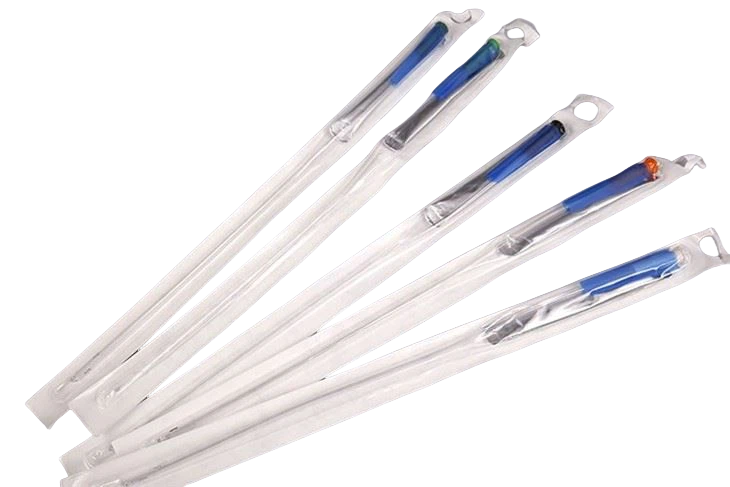TEl: +86-13148388090
Fax:+86-571-88616515
Navigating Incontinence: Before and After Childbirth Tips
Author: admin / 2025-05-12You'll notice that your body goes through a lot of changes during pregnancy—especially as your baby grows. During pregnancy, you might face some challenges like morning sickness, stretch marks, and back pain. And some women may experience bladder leaks or even urinary incontinence due to the pressure on the bladder. In this article, we'll talk about how to manage bladder leaks during pregnancy and after childbirth.

What Causes Pregnancy-Related Incontinence?
Hormonal Shifts
Hormones like relaxin and progesterone loosen pelvic floor muscles during pregnancy. While this helps prepare the body for childbirth, it also increases the risk of urine leakage.
Bladder Pressure
As your baby grows, your uterus puts pressure on the bladder, reducing its holding capacity and making urgency and frequency more common.
Muscle Weakness
Pregnancy and vaginal delivery can weaken the pelvic floor. Weakened muscles can no longer support the bladder and urethra properly, causing stress incontinence.
When Does Incontinence Begin?
For many women, leakage starts in the second or third trimester. However, some may notice symptoms as early as the first trimester due to hormonal changes. Postpartum incontinence may persist for weeks or months, especially after a vaginal delivery.
Risk Factors for Incontinence
-
Multiple pregnancies
-
Vaginal deliveries with forceps or prolonged labor
-
High BMI before pregnancy
-
Smoking or chronic coughing
-
Carrying twins or a large baby
-
A family history of urinary incontinence
Being aware of these risk factors can help you take early preventative steps.
How to Prevent or Manage Incontinence
Strengthen Pelvic Floor Muscles
Kegel exercises are essential. Contract your pelvic muscles for 5 seconds, then relax. Repeat 10–15 times, three times daily. Consistent practice before and after birth can reduce leakage and strengthen bladder control.
Train Your Bladder
Bladder training increases the interval between bathroom trips. Start by extending your time by 10 minutes and gradually increase. This method is especially effective for urge incontinence.
Use Hydrophilic Catheters
For individuals requiring temporary bladder drainage, hydrophilic catheters provide a comfortable, low-friction solution. These catheters are pre-lubricated, reducing urethral irritation and increasing safety during use.
Dietary and Lifestyle Adjustments
Maintain a Healthy Weight
Extra body weight adds pressure to the bladder. Returning to your pre-pregnancy weight can relieve some stress on your pelvic floor.
Limit Irritants
Avoid bladder irritants like caffeine, alcohol, and spicy foods. Also, drink plenty of water and eat high-fiber foods to prevent constipation, which can worsen urinary leakage.
Quit Smoking
Smoking causes chronic coughing and bladder irritation, both of which can lead to or worsen incontinence.
Postpartum Recovery Tips
Be Patient and Consistent
Recovery takes time. Continue pelvic exercises and monitor your bladder habits. Speak with your doctor if symptoms persist after 6–8 weeks.
Consider Medical Devices
In some cases, a pessary—a removable vaginal support device—can help. Your doctor may also recommend an intermittent catheter kit if you’re unable to fully empty your bladder post-delivery.
Seek Professional Help
Pelvic floor therapists, urologists, or OB/GYNs can offer support. In some situations, minimally invasive surgical options may be discussed.
Choosing the Right Products
When selecting incontinence products, choose reliable, medical-grade supplies. For temporary self-catheterization needs, an intermittent catheter is a discreet and hygienic option.
Working with an experienced catheter supplier ensures quality, consistency, and proper support. If you’re in a military, emergency response, or clinical setting, OEM catheter kits provide flexibility for various environments.
When to See a Doctor
Seek help if:
-
You experience pain during urination
-
Leaks worsen or disrupt your daily life
-
Symptoms persist more than 8 weeks after birth
-
You have a history of pelvic floor issues or surgeries
Prompt intervention can prevent long-term complications.
Final Thoughts
Urinary incontinence is common, but treatable. With the right exercises, bladder training, and medical support, most women regain full control. For clinicians and aid organizations, having the right tools—like intermittent catheter kits and hydrophilic catheters—can support maternal health in both civilian and military care settings.
As a trusted catheter supplier, Bever Medical offers high-quality intermittent catheter solutions tailored for OB care, field hospitals, and urgent relief programs. Any interests, please feel free to contact us today.



 English
English

